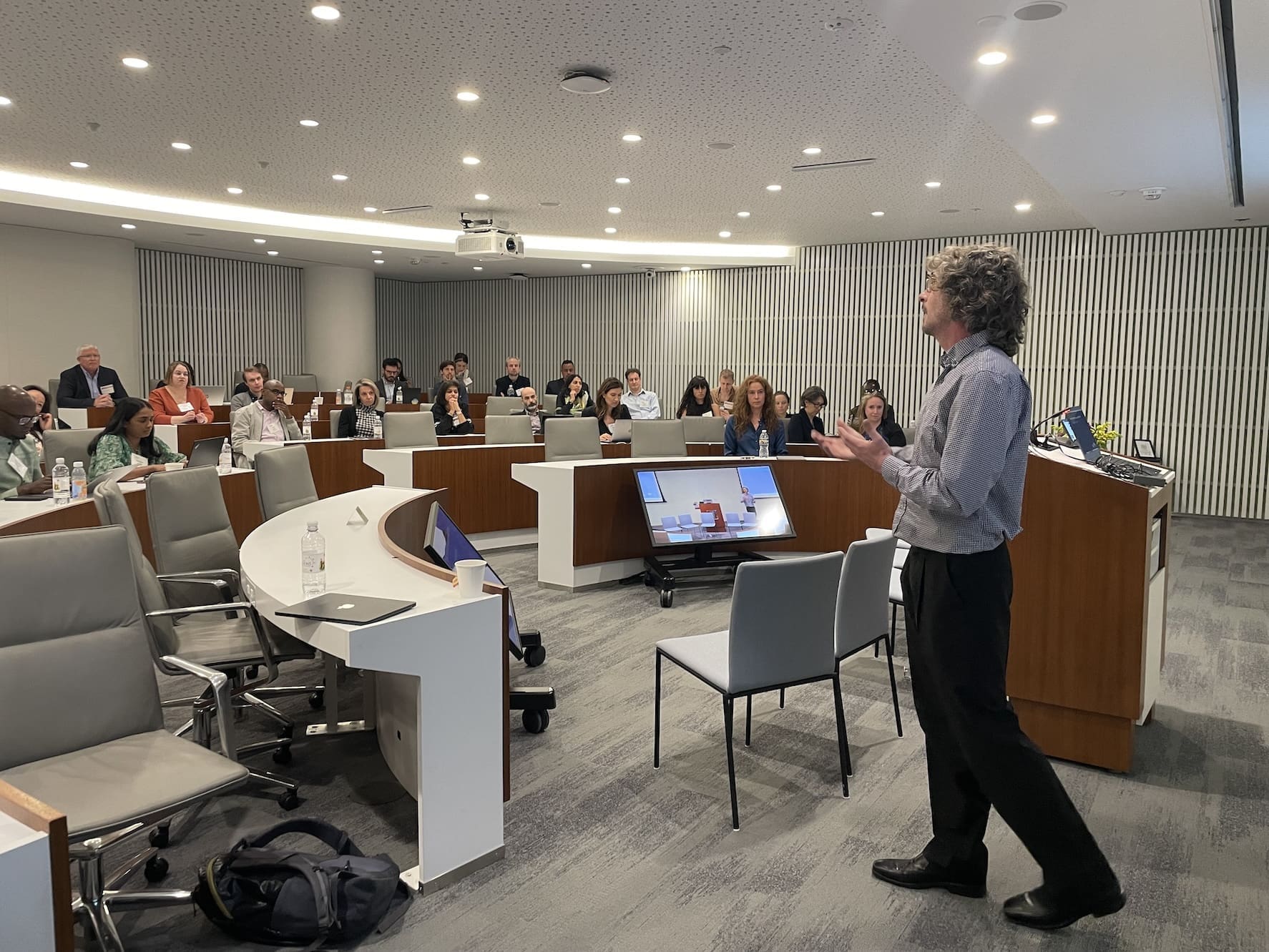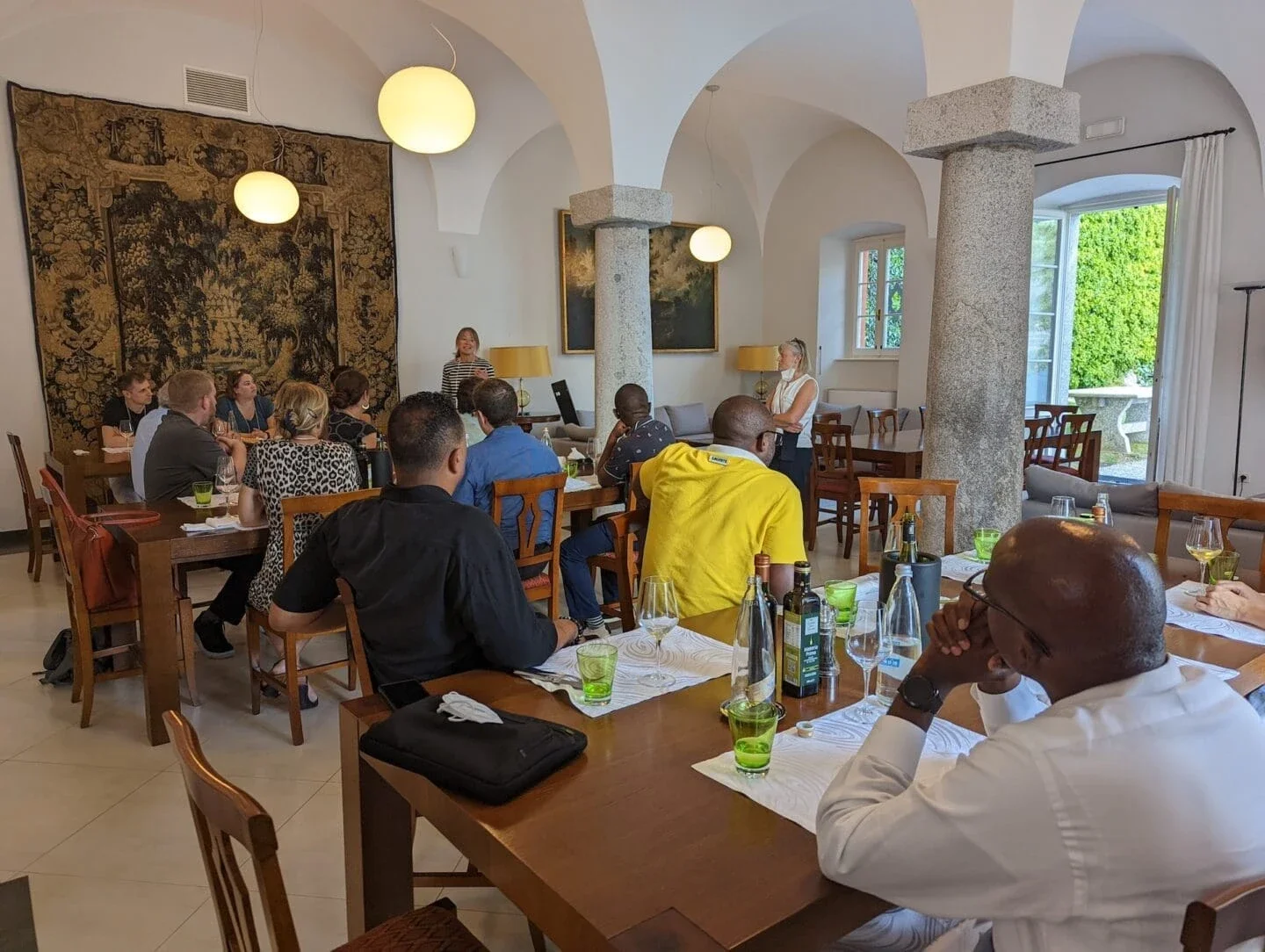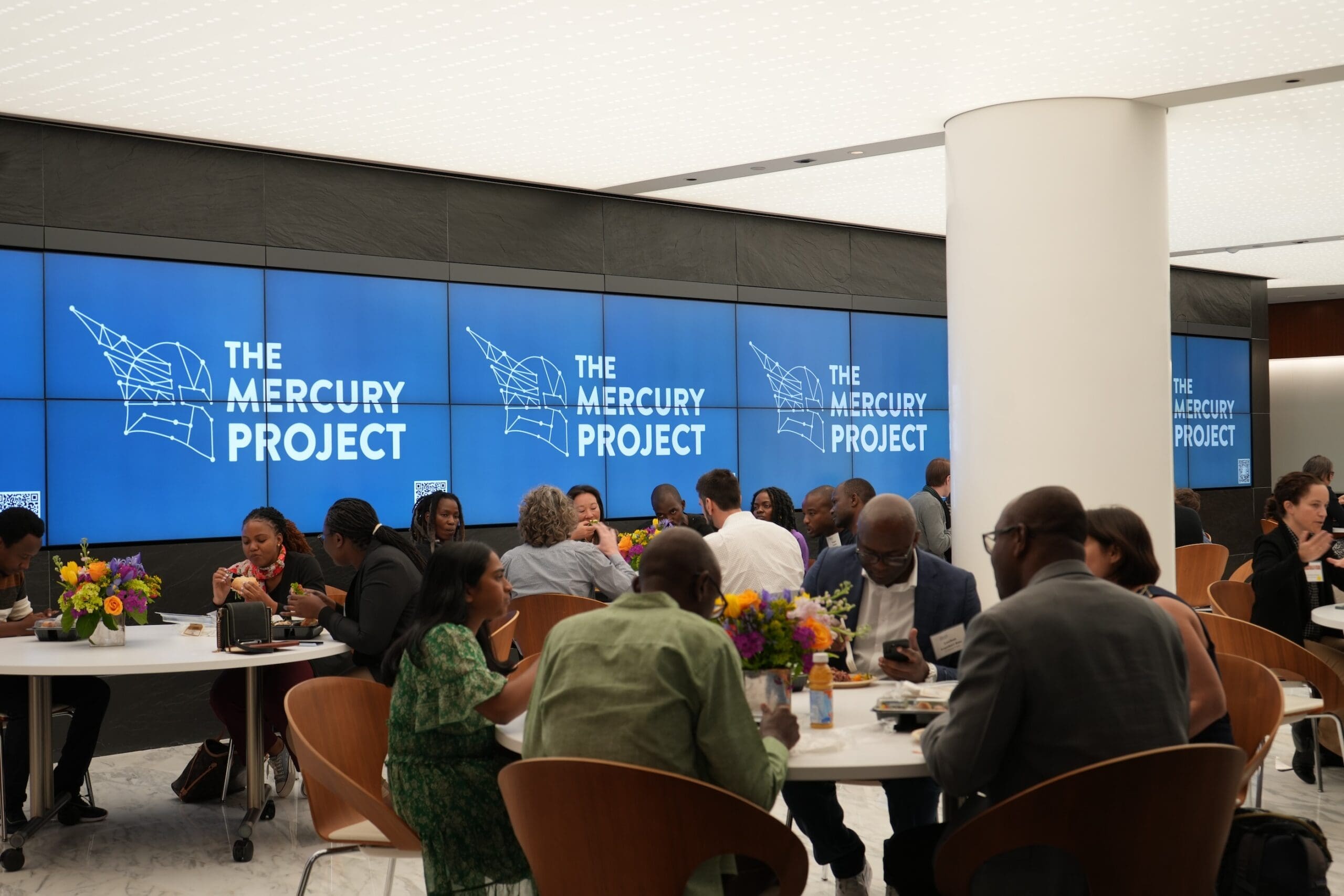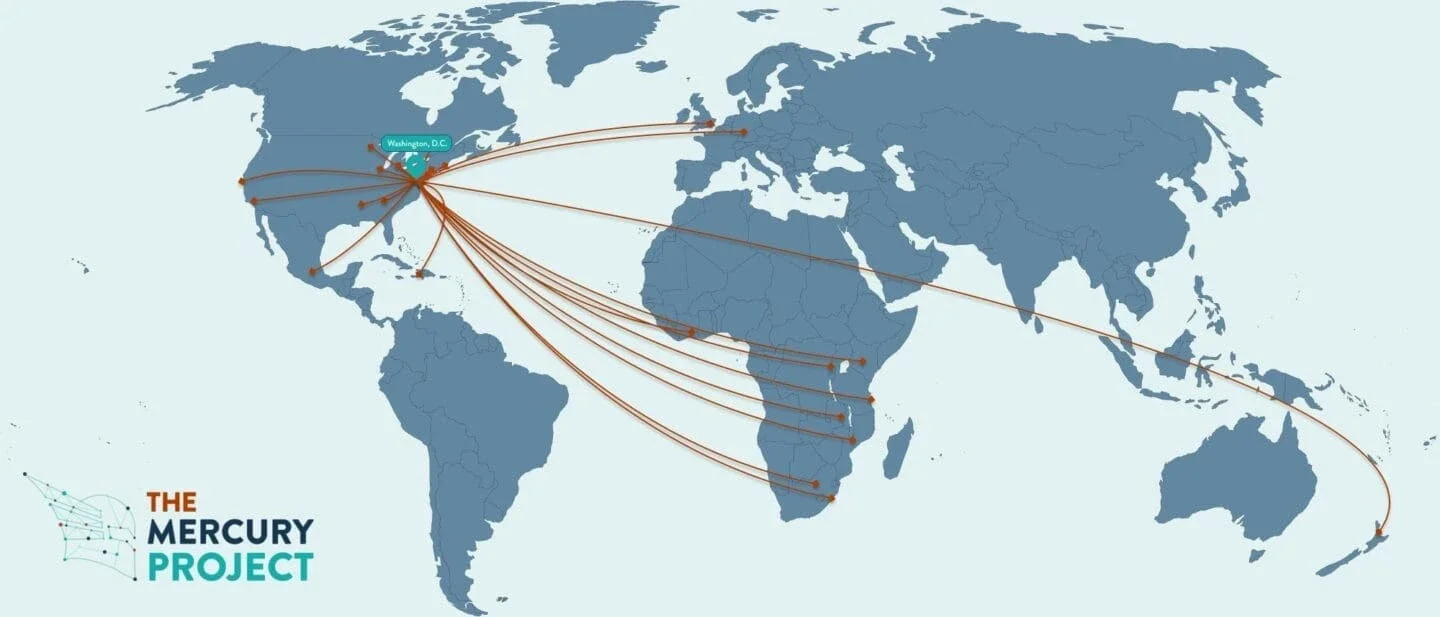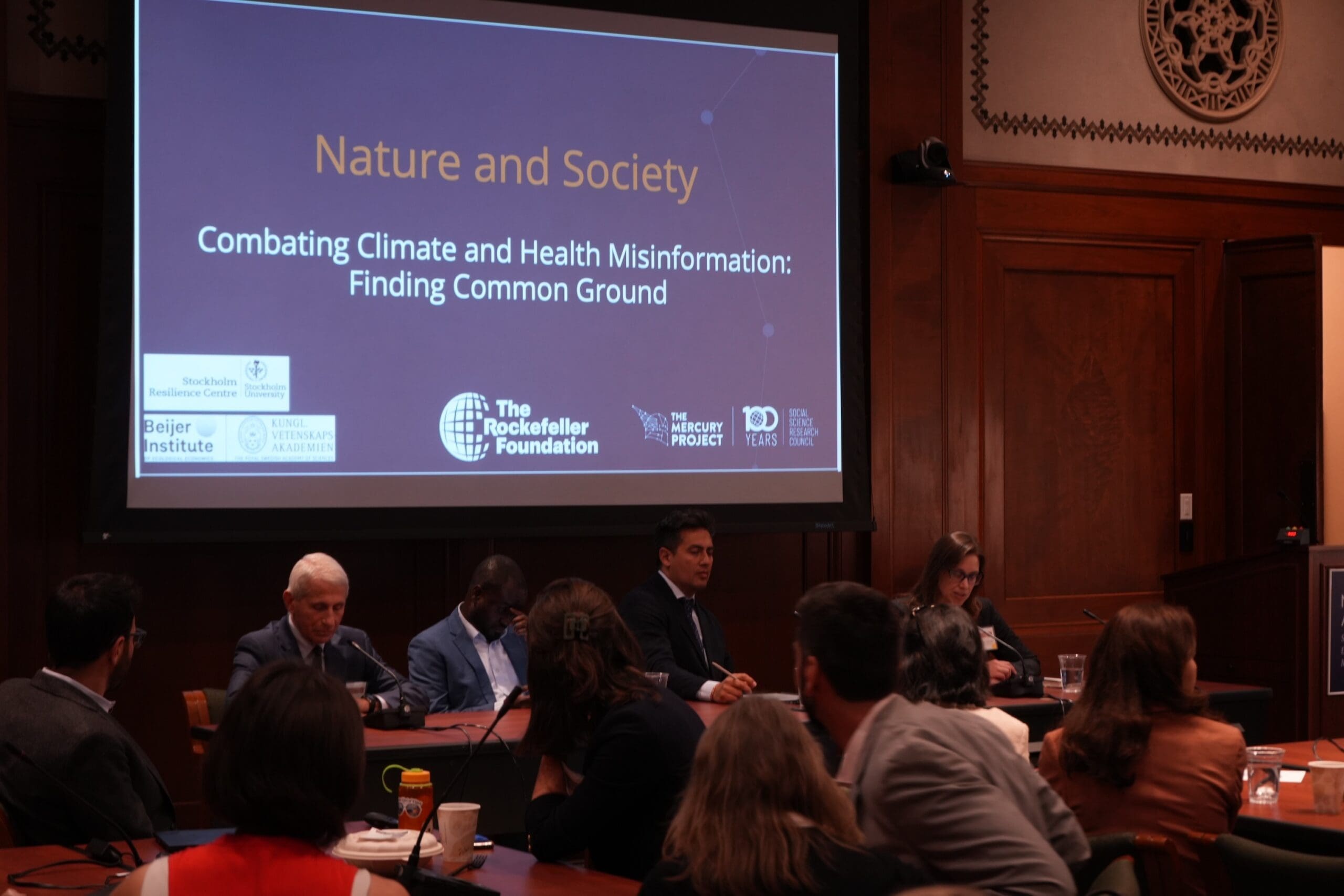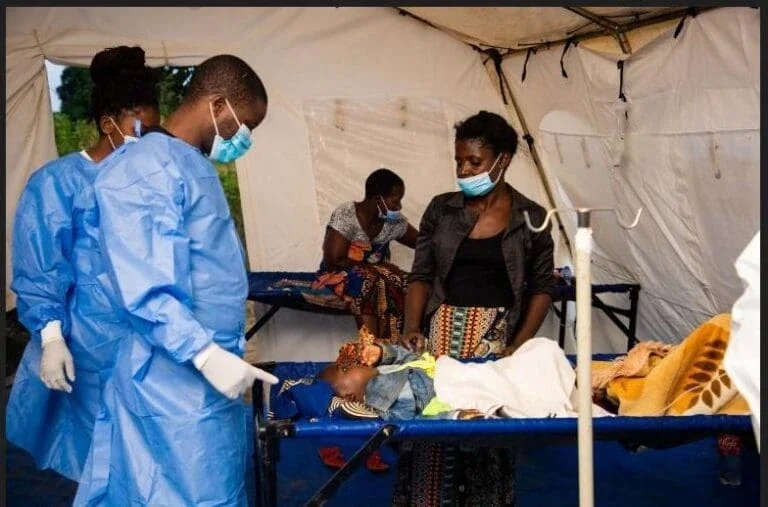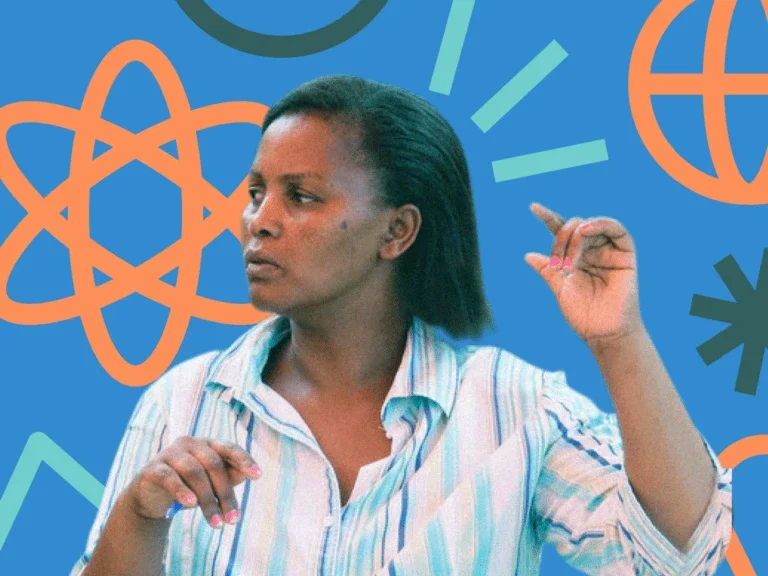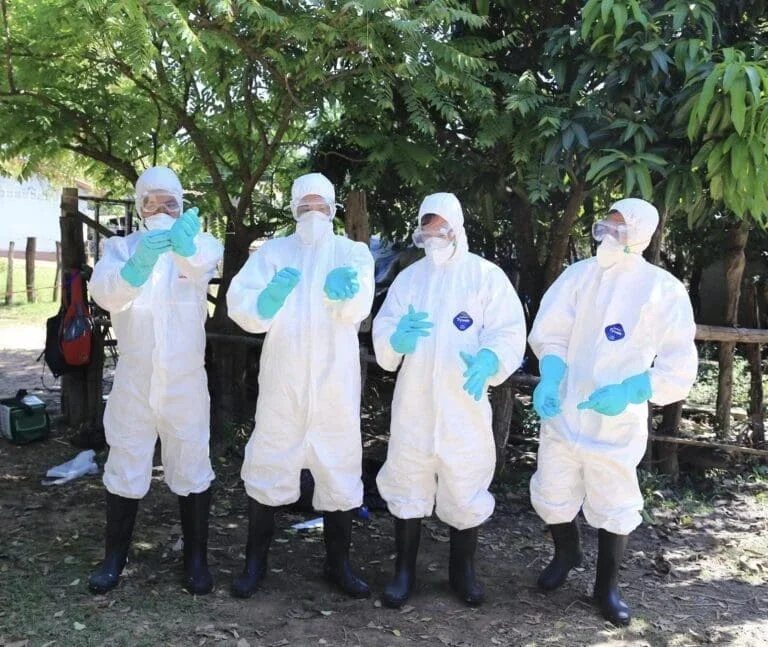The Mercury Project, a $25 million initiative seeded by The Rockefeller Foundation in 2021, brings together 133 members from diverse disciplines across Africa, Asia, the United States, Europe, Australia, Canada, Latin America, and the Caribbean.
Reliable vaccines now can be developed much faster, and we can be confident in them. But we have to convey that to a sometimes-skeptical public.
Heather LanthornProgram DirectorThe Mercury Project
It's all about combining approaches, because no single method works on its own.
Rebecca GluskinFormer Co-DirectorThe Mercury Project
Samantha Horn, a behavioral scientist, is part of a University of Chicago team working with Sierra Leone’s Ministry of Health and others to investigate two approaches to encourage vaccination.
“A lot of the misinformation research has taken place in the U.S. and the challenges are so different regionally,” Horn said. “In Sierra Leone, for instance, most people get their health information through WhatsApp.”
For Horn, the project convenings have been important because they occur “just as we are devising trials and conducting research. For instance, our team planned to show participants a video and leave it at that. At a convening, it was suggested that we improve learning by asking participants questions after they saw the video. So we incorporated that into our research.”
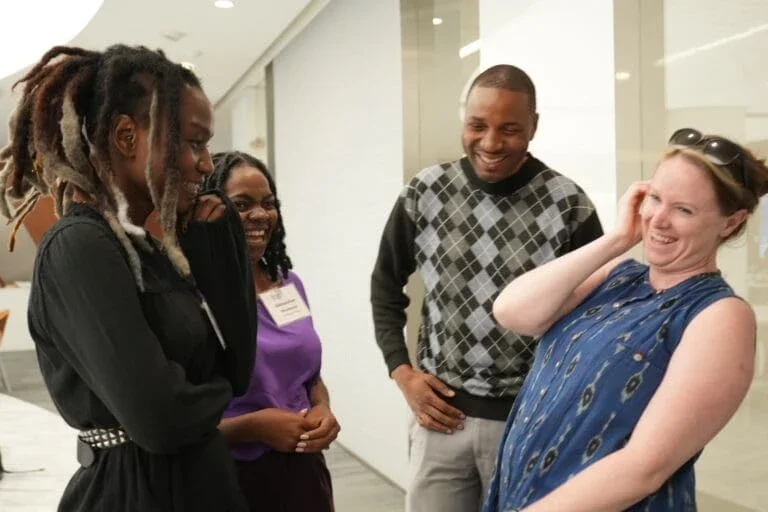
More in this Matter of Impact Edition
A Meeting of the Minds at Bellagio Spurs a Convening and a Movement
A chance meeting at the Bellagio Center develops into a partnership and the launch of an organization dedicated to creating a just and inclusive economy that enables health and dignity for all people.
read moreThe Magic of Convenings
This quarter's Matter of Impact dives deep into why convenings matter, and why we need to make time for them to achieve impact.
read more